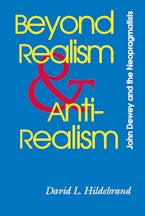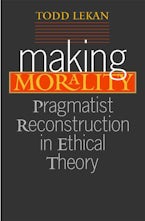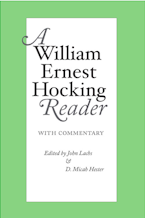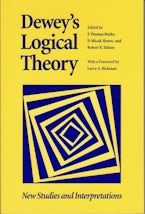- Home
- Fateful Shapes of Human Freedom

Fateful Shapes of Human Freedom
John William Miller and the Crises of Modernity
The book is not simply a study of a particular philosopher or a single philosophical movement (American idealism). It is rather a philosophical confrontation with a cluster of issues in contemporary life. These issues revolve around such topics as the grounds and nature of authority, the scope and forms of agency, and the fateful significance of historical place. These issues become especially acute given Colapietro's insistence that the only warrant for our practices is to be found in these historically evolved and evolving practices themselves.
Vincent Colapietro is professor of philosophy at Pennsylvania State University and incoming president of the Metaphysical Society of America. He is author of Glossary of Semiotics and Peirce's Approach to the Self and editor of three other books.
This is an important book. John William Miller's ideas are profoundly relevant to understanding and dealing with a range of contemporary problems--whether they relate to the nature of historical understanding, to the conduct of life, or to the history of philosophy itself--and deserve the systematic presentation and interpretation that Colapietro offers here.
--Robert H. Elias, Professor Emeritus, Cornell University
Colapietro writes a new and important chapter in American thought by recovering Miller's neglected insights into the interplay between fate and freedom in human history. We are met with the paradox that the forms in which freedom expresses itself, while subject to fate, are not overcome by it, but remain genuine fruits of human purpose. Miller emerges as a worthy follower of Royce and Hocking.
--John E. Smith, Yale University
Colapietro argues that Miller successfully overcomes the dilemmas of recent historicism, but especially of nihilism and dogmatism. 'Learned' in the best sense of the word, he finds that Miller's ignored work is topical and important, and allows an engagement with, for example, not only Heidegger and Sartre, but with Foucault and Derrida. The comparisons are always provocative. Highly recommended.
--Peter Manicas, University of Hawaii
Thank you, Vincent, for preventing the precipitous loss of Miller within a modernity that prohibits uniqueness, or a post modernity that prohibits the fabric.
--Society for the Advancement of American Philosophy Newsletter











